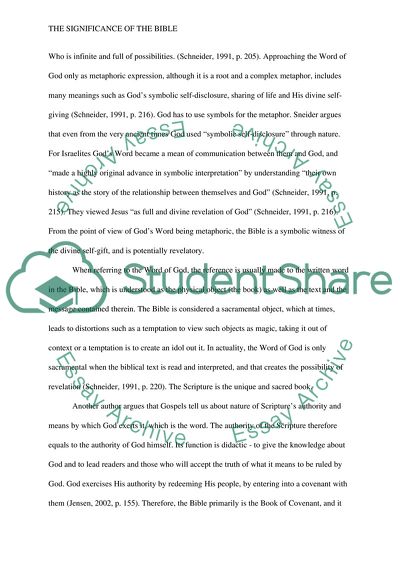Cite this document
(The Significance of the Bible for Christian Theology Essay Example | Topics and Well Written Essays - 1500 words, n.d.)
The Significance of the Bible for Christian Theology Essay Example | Topics and Well Written Essays - 1500 words. https://studentshare.org/religion-and-theology/1769340-what-is-the-significance-of-the-biblethe-scriptures-for-christian-theology
The Significance of the Bible for Christian Theology Essay Example | Topics and Well Written Essays - 1500 words. https://studentshare.org/religion-and-theology/1769340-what-is-the-significance-of-the-biblethe-scriptures-for-christian-theology
(The Significance of the Bible for Christian Theology Essay Example | Topics and Well Written Essays - 1500 Words)
The Significance of the Bible for Christian Theology Essay Example | Topics and Well Written Essays - 1500 Words. https://studentshare.org/religion-and-theology/1769340-what-is-the-significance-of-the-biblethe-scriptures-for-christian-theology.
The Significance of the Bible for Christian Theology Essay Example | Topics and Well Written Essays - 1500 Words. https://studentshare.org/religion-and-theology/1769340-what-is-the-significance-of-the-biblethe-scriptures-for-christian-theology.
“The Significance of the Bible for Christian Theology Essay Example | Topics and Well Written Essays - 1500 Words”. https://studentshare.org/religion-and-theology/1769340-what-is-the-significance-of-the-biblethe-scriptures-for-christian-theology.


